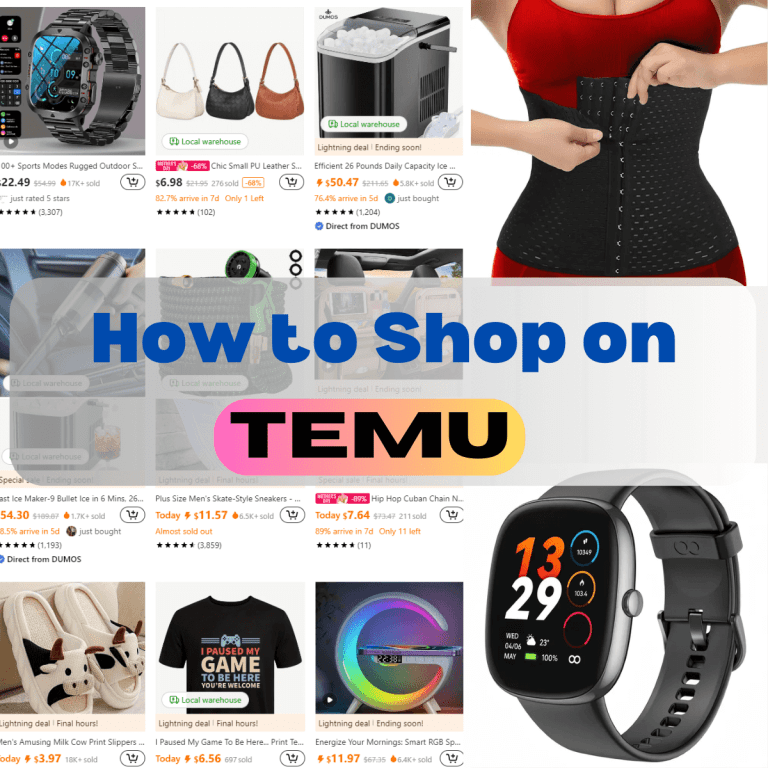Please Follow us on social media >>>>
How to Know a Reliable Supplier for Mini-Importation Business.
As an importer, you are aware that reliable supplier for your mini-Importation business can make or break you.
This article covers everything you need to know about your suppliers.
Remember that this article is part of an Advanced Tutorial on Mini-Importation for Both Newbies and Pros. You may want to go check it out as it is parked with a lot of information for you.
Let’s face it, you cannot succeed in importation without using a reliable supplier, hence, we will focus on what to look out for, and how to know a good supplier.
Choosing a reliable supplier is essential for the success of your import business. But what do you look for in a supplier? How do you spot a good one to work with?
Other Articles Related to Mini-Importation:
Factors to Consider When Evaluating Potential Suppliers:
Share This with Your Friends Now Before you Forget
There are so many things to look out for while you are in search of a supplier to work with. I will try my best to list the things I have experienced in my years of doing business in this sphere.
I have also learned a lot of lessons from the complaints of my students. And by providing them with solutions, I have seen what works and what does not. There is a complete Guide to Finding Reliable Suppliers for Mini-Importation in Africa. Feel free to add that to your resources.
The first thing to look for is the responsibilities of who will be your supplier.
Responsibilities of a Good Supplier:
- Quality of products: Your supplier should be able to stock quality products. Or at least the quality must be what he said it is. The quality of the products is a crucial factor to consider when choosing a supplier. Make sure to request product samples and check for quality issues such as
- defects,
- packaging, and
- labeling.
- Also, check if the supplier has quality certifications such as ISO, CE, or FDA.
- Reputation and Reviews: There must be evidence of a good reputation on the part of your supplier. Check the supplier’s reputation and reviews from other customers. Look for reviews on their website, social media pages, and third-party review sites. If possible, ask for references from other customers who have worked with the supplier.
- Pay Attention to Communication and responsiveness: I personally like it when my suppliers respond as fast as possible. It is a good sign that he is into some serious business. A reliable supplier should be easy to communicate with and respond promptly to inquiries and requests. They should be open to discussing your needs and providing information about their products and services. If you find one like this, hold onto him.
- Delivery time and logistics: This should be clearly spelled out. Make sure to confirm the supplier’s delivery time and logistics. YOu do not want to wait for eternity for your goods to arrive. So, check if they can handle your order size and if they offer shipping options that meet your needs. Also, check if they have experience shipping to your country and if they have a track record of timely deliveries.
- Pricing and payment terms: I have been in a situation where the supplier’s payment method was not okay with me. Each marketplace and supplier will always have what works for them. Compare the pricing and payment terms of different suppliers. Make sure to factor in shipping, taxes, and other fees when comparing prices. Also, check if the supplier offers payment methods that are convenient for you and if they have a secure payment process.
- After-Sales Support: A reliable supplier should offer after-sales support such as warranties, repairs, and replacements. If the supplier has a customer support team that can help you with any issues that may arise after the purchase, then it is a plus to their account.
Actions to Take Before Choosing a Reliable Supplier for Importation-Business:
To know a reliable supplier, you need to take certain responsibilities and pay attention to factors that will benefit your importation business. Below are some of the actions you can take before you finalize your decision to do business.
- Check for certifications and licenses. Check if the supplier has the necessary certifications and licenses to operate in their industry and country. This includes certifications for quality control, safety, and environmental compliance. You can verify their certifications and licenses through online resources or by contacting relevant government agencies.
- Assess their capacity and experience. It’s essential to assess the supplier’s capacity and experience to meet your needs. Check if they have the necessary equipment, technology, and personnel to handle your order size and complexity. Also, check if they have experience exporting to your country and have a good understanding of local regulations and customs procedures.
- Consider cultural and language barriers. When dealing with international suppliers, cultural and language barriers can be a challenge. Make sure to choose a supplier who can communicate effectively in your language and is familiar with your cultural norms and business practices. This will help prevent misunderstandings and improve your working relationship.
- Visit the supplier’s facility: Do this if you are planning to invest a lot of money into that supplier. If you have a unique design or concept you developed yourself, before you go full throttle, it is prudent thing to take the extra step to go see things for yourself. If possible, visit the supplier’s facility to see their operations firsthand. This will give you a better understanding of their capabilities, quality control measures, and working conditions. It’s also an opportunity to meet the supplier’s personnel and build a personal relationship.
- Request for Legal Agreements: To protect your business and ensure that both parties have a clear understanding of their obligations, it’s essential to have legal agreements in place. These agreements can cover aspects such as product specifications, delivery times, pricing, and payment terms. Make sure to consult with a legal professional to draft these agreements. Aso, this is necessary only if you are planning to go deep into the business.
- Consider supply chain risks. International trade involves various risks, such as supply chain disruptions, currency fluctuations, and geopolitical risks. It is your responsibility to assess these risks and develop contingency plans to mitigate them. Your customers will not care if you encountered issues along the supply chain. so Plan ahead. This includes having backup suppliers, diversifying your product range, and monitoring market conditions regularly.
Your Responsibilities In Choosing A Good Supplier:

- Read reviews and feedback. Reading reviews and feedback from other customers can also help you assess a supplier’s reliability. Look for reviews and feedback on the supplier’s website, online forums, and social media. A good resource to make life easier for you is Supply Chain Management Review
- Pay attention to comments about the supplier’s product quality, delivery times, and customer service. However, keep in mind that some reviews may be biased or fake, so it’s essential to read a variety of sources and use your judgment.
- Visit trade shows and exhibitions. Trade shows and exhibitions are excellent places to meet potential suppliers and learn about the latest products and trends in your industry. Attend local and international trade shows and exhibitions to network with suppliers and get firsthand information about their products and services.
- Conduct background checks: Before choosing a supplier, conduct a background check to verify their credentials and reputation. Use online resources such as business directories, government databases, and industry associations to research the supplier’s history and track record.
- Get Referrals: Ask for referrals from other businesses in your industry or region. Referrals are an excellent way to find reliable suppliers who have a proven track record of delivering high-quality products and services. And record and reliability.
- Use escrow services. To ensure the safety of your payments and transactions, consider using escrow services. Escrow services act as intermediaries between buyers and suppliers and hold the payment until both parties have fulfilled their obligations. This can help protect you from fraud or unscrupulous suppliers. Moreover, a reliable supplier will not frown at the idea of using an escrow since he has nothing to fear.
- Monitor Performance Once you have chosen a supplier, monitor their performance regularly. Keep track of their delivery times, product quality, and customer service. Provide feedback on their performance and address any issues promptly to ensure a good working relationship.
Share This with Your Friends Now Before you Forget
Look Beyond Your Supplier before you commit to anything:
- How does the marketplace see and rate him? Is your supplier part of a bigger organization, or just a one-man business run in the basement of some obscure locations?
- Supplier Level and Badges Some online platforms, like Alibaba, have a system of supplier levels and badges that indicate the supplier’s reliability and credibility. These levels and badges are based on various factors, such as the supplier’s transaction history, customer feedback, and compliance with platform policies. Make sure to check the supplier’s level and badges when sourcing from these platforms, as it can give you an idea of their track
- Maintain open communication. Maintaining open communication with your supplier is crucial to building a good working relationship and resolving any issues promptly. Make sure to establish clear lines of communication and provide regular updates on your orders and requirements. Also, make sure to address any concerns or issues promptly to prevent them from escalating.
Finding a reliable supplier for your importation business requires careful research, assessment, and relationship-building.
By following these tips, you can minimize the risks associated with international trade and take advantage of the opportunities in the global market.
My name is Echez, and I am a senior content writer, an entrepreneur, and a digital marketer. I have been in importation for over a decade now. If you need a push on starting your online business today, book a call now.
Do you like this article? Share now and tell me in the comment section how you feel.
Do you want access to the full series of Advanced Tutorials on Mini-Importation for Both Newbies and Pros?



[…] In this article, I will walk you through the process of finding the best suppliers for your mini-importation. Will you know a good supplier when you find one? If your answer is no, then find out How to Know a Reliable Supplier for your Importation Business […]
[…] will start with the choices you make. Before you read far, you may also be interested in knowing How to Know a Reliable Supply. If so, you are at the right site. Now, let us dive […]
[…] How to Know a Reliable Supplier for Mini-Importation Business. […]
[…] How to Know a Reliable Supplier for Mini-Importation Business. […]
[…] How to Know a Reliable Supplier for Mini-Importation Business. […]
[…] How to Know a Reliable Supplier for Mini-Importation Business. […]